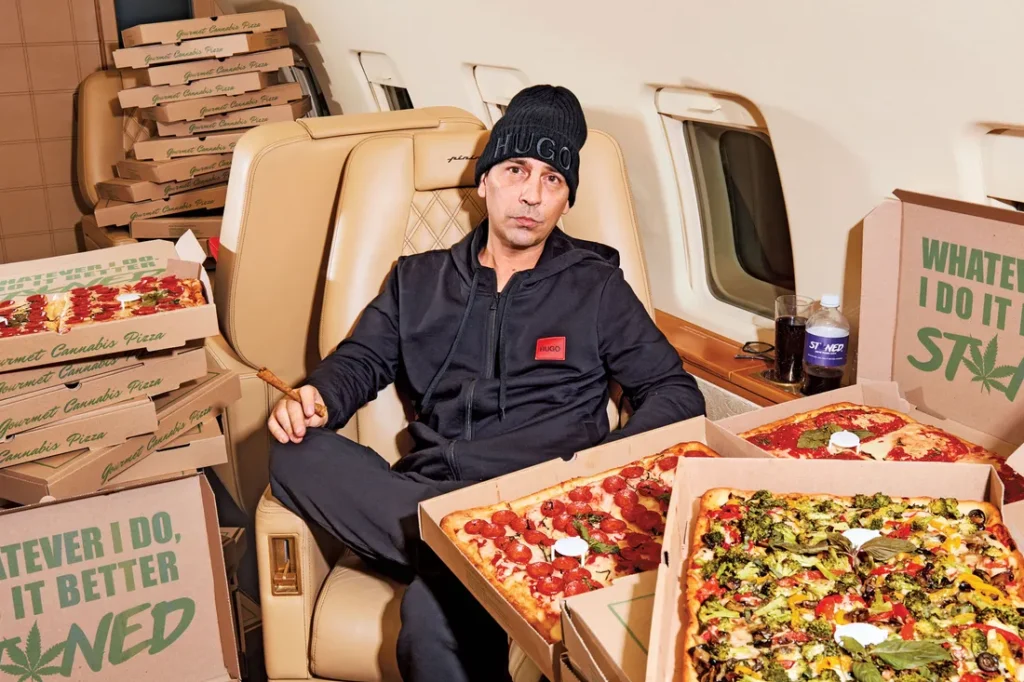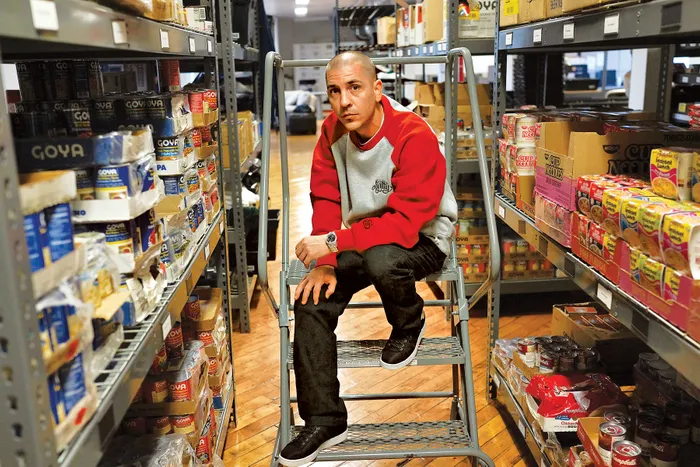Contact Information
- 235 E 4th St, New York, NY 10009, United States
MILLION DOLLAR SLICE
The visionary entrepreneur and business leader, known as the Pizza Pusha, embarked on a remarkable journey that would forever transform the culinary landscape. It takes an untethered relentless ambition to build a brand like Stoned Pizza.
His extraordinary story began in 2015 as he ventured into the vibrant growing scene of California, setting the stage for what was to come.
In 2016, the Pizza Pusha initiated the concept of infused dinners, bringing it to NYC and marking the inception of his culinary vision. This was a pivotal moment that set the course for his innovative venture


Fast forward to 2017, the Pizza Pusha made his mark with a pickup and delivery service in the bustling neighborhood of Hell’s Kitchen, a venture that outgrew it’s space in mere months. Not content to rest, he continued his journey, relocating to Queens, Sunnyside, expanding his reach and service capabilities. Every time he faced a roadblock, he rammed straight through it keeping his loyal customers in mind.
2017 proved to be a dynamic year, as he established his very first store in Hoboken, New Jersey, further enhancing his presence in the culinary world. After moving the same year, he ventured into the vibrant neighborhood of Sunset Park in Brooklyn, where he garnered the attention of the media.
Navigating moves across locations Pizza Pusha went to great lengths for uninterrupted service.
The following year, in 2018, the Pizza Pusha moved his pickup service to Williamsburg, where he continued to redefine the pizza experience, leaving an indelible mark on the community.
As the Pizza Pusha’s journey unfolded, 2019 saw the establishment of a Harlem Townhouse, serving as an Influencer House, and a testament to his enduring commitment to culinary innovation. During this time, the pickup and delivery model saw remarkable success, celebrities and influencers flocked in numbers to embrace the innovation of infused gourmet food.
In September 2020, the Pizza Pusha achieved a significant milestone with the opening of his first restaurant on East 4th Street, an exciting moment in his journey. It also marked the launch of the Godfather Product, further solidifying his presence in the culinary world.
The year 2021 brought further adventures as the Pizza Pusha delved into Coney Island, this was an unprecedented endeavor that coincided with the recreational legalization in NYC. A massive undertaking that was nestled amongst the rides, crowds thronged to Coney Island just to try Pizza Pusha’s newest venture. This was one of the most incredible attractions in all of NYC with an elevated friendly environment. After Stoney Island, the Stoned Mansion in Harlem made its debut, reflecting the Pizza Pusha’s relentless pursuit of excellence. This was the mansion seen in Wes Anderson’s film “The Royal Tenenbaums”. Pizza Pusha transformed it into a Royal experience for celebrities and the community. Audio releases, community events, and creativity flowed and flourished with the support of Pizza Pusha.
In 2022, he opened the Supper Club on Broome Street, a testament to his unwavering commitment to innovation. Live music from America’s Got Talent singers serenaded guests. As the journey continues into 2023, the Pizza Pusha unveiled the Beach House in Brooklyn and the Bronx Eighths, a unique pizza-by-the-slice experience, further expanding his culinary empire.
Looking ahead to the future, the Pizza Pusha’s vision remains boundless. His plans include the establishment of restaurants in Philadelphia and New Jersey. The story of this visionary entrepreneur and business leader is far from over, as he continues to revolutionize the world of pizza and culinary infused experiences.
